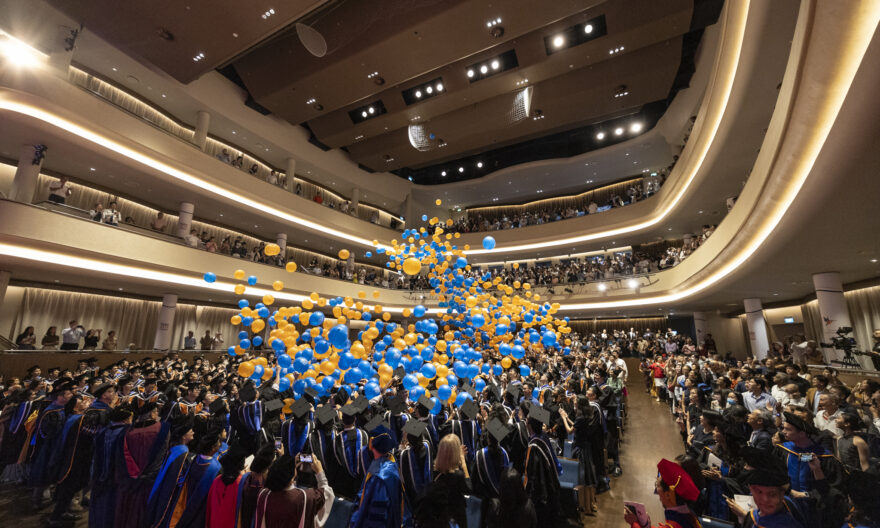Language tables at Yale-NUS create spaces for sharing and learning new languages

When you walk into the dining halls of Yale-NUS College during mealtimes, you will often hear a symphony of sounds, including a seemingly endless stream of laughter, debates, serious conversations and jokes. Most of the conversations are in English but if you listen closely, you can sometimes hear other languages being spoken too.
These are commonly known as the ‘Language Tables’, which are organised by students. It is a designated area of the dining hall for the day where our community shares and learns a specific foreign language. Drawing upon the international diversity of the Yale-NUS student population with over 65 nationalities represented, it seems only natural that the dining halls play host to these Language Tables, which run once a week in any one of the residential colleges.
In the Class of 2021, around 60% of students are bilingual and 25% of students can speak three or more languages. In total, there are over 23 different languages being spoken. Language Tables are held for over 10 languages and dialects, including Cantonese, Chinese, French, Hindi, Indonesian, Japanese, Korean, Malay, Spanish and Urdu.
Language Tables are open to community members of all levels of proficiency, ranging from enthusiastic beginners to those who are fully fluent and for those whom it is their native tongue. Jamin Jamieson (Class of 2019), a New Zealand native who is learning Indonesian said, “All Language Tables are open regardless of your level. This allows all of us to take a turn at being a tutor and learner”.
For Foong Xiu Ting (Class of 2021), the Cantonese Language Table allows her to connect with the dialect of her family. She shared, “Personally, the Cantonese dialect has a special place in my heart. It has really enabled me to communicate more effectively with the older generation”. She added that the Language Tables are usually held during lunch and have a casual setting. This prevents new learners from getting intimidated.
Jiang Long Liao (Class of 2020), President of the Global China Connection student organisation which organises various Chinese cultural student events on campus, said that the Chinese Language Table helps to create a positive, dynamic Chinese language learning environment. He added that professors in the Chinese language programme have participated during these sessions and have been supportive and constructive in their feedback.
Yale-NUS offers classes in modern languages, such as Chinese and Spanish, and classical languages like Latin, Sanskrit, Ancient Greek and Classical Chinese. Students can also learn Italian, Portuguese and Russian at the Yale Center for Language Study via teleconferencing or other languages such as Japanese, German, Hindi or Arabic at the NUS Centre for Language Studies.
Ultimately, Language Tables also provide a space for learning about the significance of other cultures in a practical way, and for improving nuanced understanding of these cultures. Jiang Long said the Chinese Language Table helps people learn the difference between ‘formal’ Chinese and ‘casual’ Chinese so that they understand the appropriate contexts in which they could use either form. He added that this allows them to have a better appreciation of the language.
Similarly, Jamin said, “We often debate the difference between Malay and Indonesian words, which reveals an insight into the point of view that accompanies language. One of our inside jokes is to call our language table Meja Nusantara, which means ‘Archipelago table’ literally. It is actually a reference to the classical Majapahit world which Indonesia and Malaysia were a part of”.





